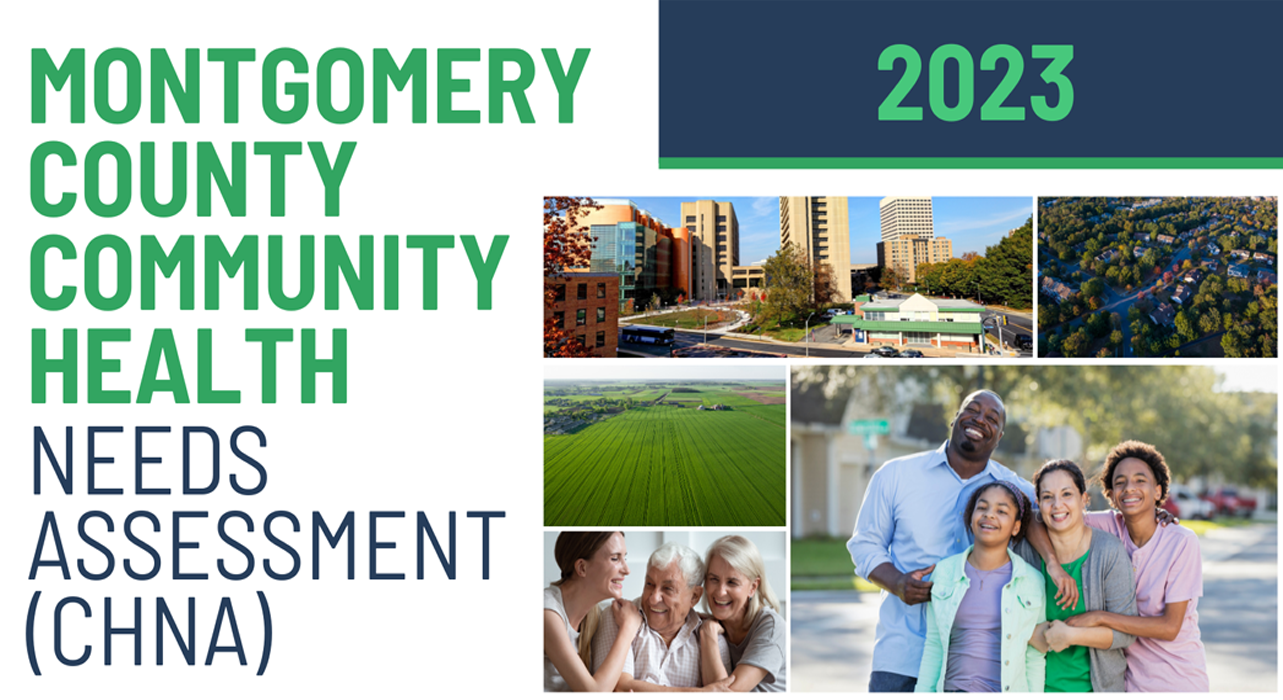Key health needs and issues are identified in the report, and these will be used to create a Community Health Improvement Plan (CHIP). The full CHNA report is available on the Healthy Montgomery website.
Residents, community partners and stakeholders are invited to attend a virtual town hall on from 3-4:30 p.m. on Wednesday, Feb. 21, for a more detailed look at the report’s findings. The town hall will offer an overview and introduction to the CHNA. Attendees will have an opportunity to ask questions at the end of the presentation during a moderated session.
The event will be of most relevance to stakeholders and community partners who will reference the CHNA’s data and findings. Advance registration for the virtual town hall is required to receive login information. Register for the Zoom event here.
Important health needs identified in the report are listed below in alphabetical order:
- Access to behavioral health and substance use services
- Access to human services’ needs, such as education, income, housing, employment, food and personal social services
- Access to parks, public spaces, wellness and recreation
- Access to quality dental health services
- Access to quality primary care health services
- Access to specialty and extended care
- Access to technology
- Access to transportation
- Active living and healthy and nutritious eating
- Cultural and language competence
- Environmental health
- Health and human services’ system navigation
- Injury and disease prevention and management
- Maternal and early childhood health
- Pedestrian safety
- Safe and violence-free environment
- Social associations and community connectiveness
- Waste management
Some findings collected from residents and stakeholders that informed the CHNA:
- Mental health was identified as the most important health problem overall.
- Residents shared that they are experiencing a lack of mental health insurance and substance use benefits and a lack of bilingual and culturally competent mental health providers to meet the needs of the community.
- Low crime and safe neighborhoods are the most important factors making up a healthy community.
- Residents indicated that it was difficult to find a medical provider to support gender-affirming medical care.
- Better access to family planning services and information is needed throughout the community.
- High costs of medical and dental care were a barrier reported by residents.
- Transportation to doctor's and dental appointments was a barrier for residents, with many stating that they must take multiple buses to get to an appointment or ask someone to give them a ride.
- Zip codes 20838, 20886, 20879, 20906, 20851, 20912, 20902, 20877 and 20903 had rates of uninsured individuals above the County’s average of 9 percent.
- Residents indicated that they do not have enough money to buy healthy foods to eat.
- Poor eating habits are affecting the health of the community.
- Diabetes, arthritis, obesity and heart disease are among the most common health issues reported by residents.
- Residents reported the need for more linguistically and culturally appropriate information about where to go for help to get health and human services.
If you would like to know more about the CHNA, email Christopher Rogers at Christopher.Rogers@montgomerycountymd.gov.

